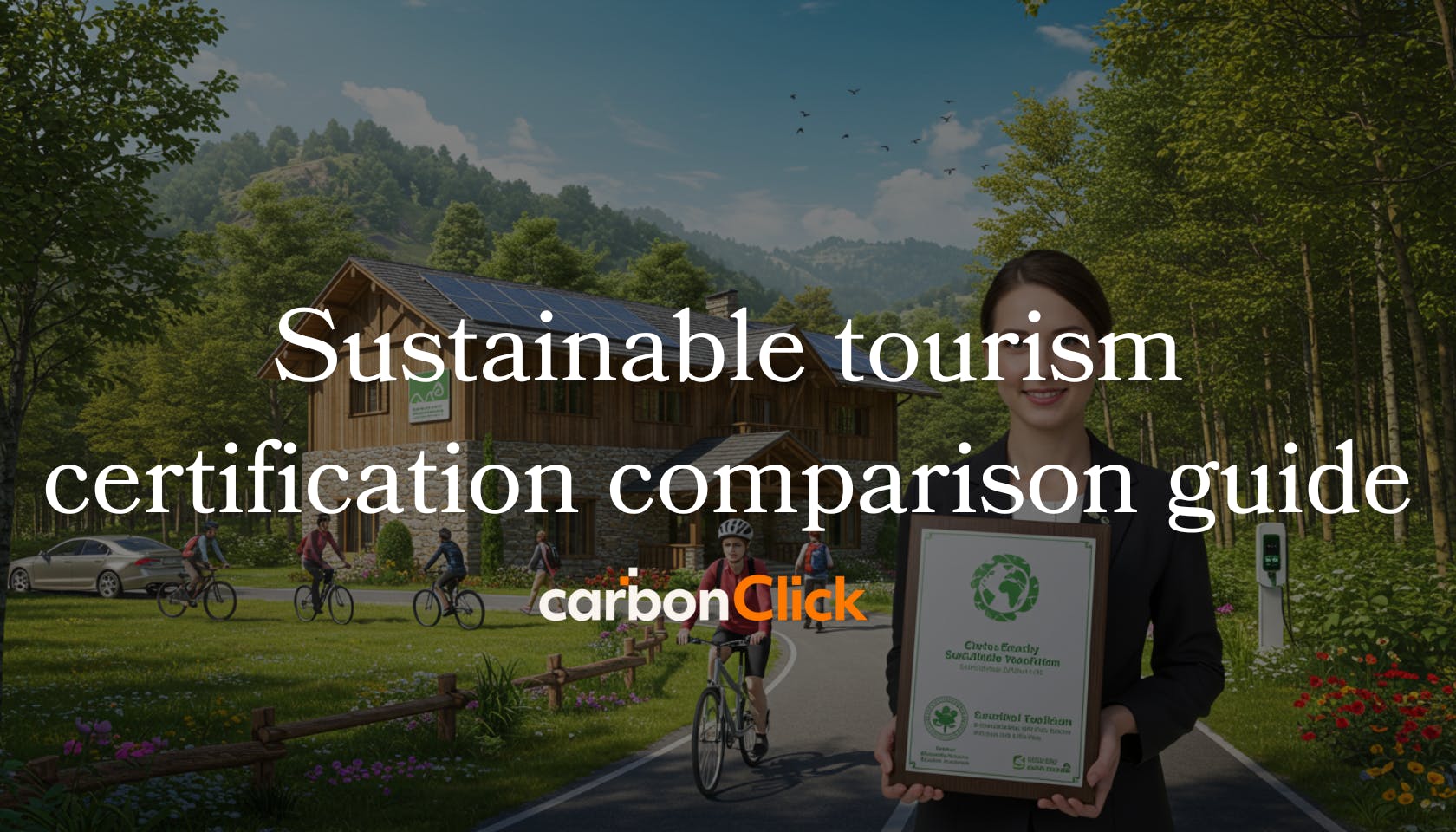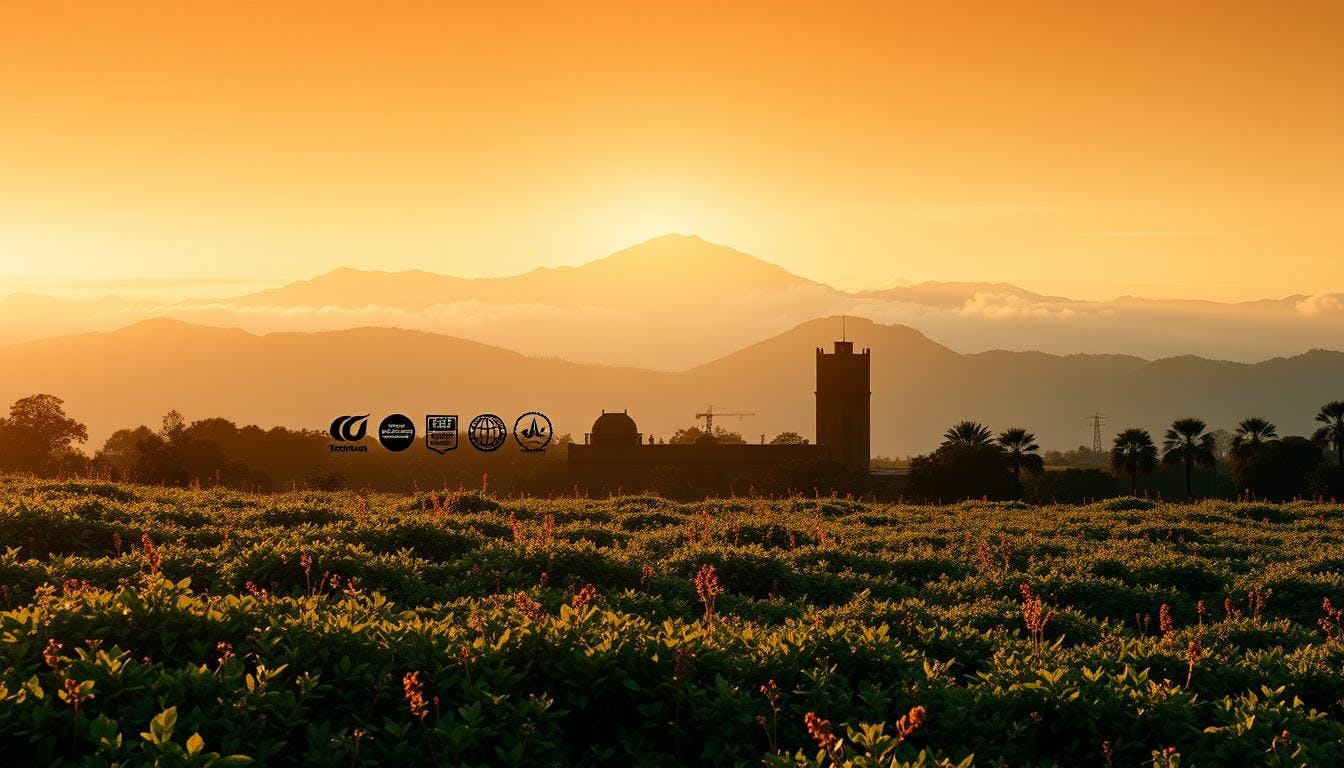Sign up. Be inspired. Get clicking.
Sustainable tourism certification comparison guide
29 April 2025
More travellers now favour businesses that follow recognised sustainability practices. According to a recent Virtuoso survey, 60% of tourists are willing to pay more for independently verified options that reflect genuine efforts. This growing demand is prompting companies to align with established frameworks. Independent certifications help distinguish meaningful actions from superficial claims. Travalyst’s 2024 compilation highlights 49 credible programmes that set clear and measurable standards for the sector. Meanwhile, new EU regulations—such as the Corporate Sustainability Reporting Directive (CSRD), coming into effect in 2025—will require greater transparency. This article explores six leading certification schemes, from Biosphere to Regenerative Travel, to support informed decisions by both businesses and travellers.

How sustainable tourism certifications work
Verified sustainability standards require clearly defined criteria and evidence of real progress. Certification schemes such as Green Globe apply 44 core standards supported by 380 specific indicators to assess business practices. Others, like B Corp, use a scoring system where organisations must reach at least 80 out of 200 points to qualify.
Two main structures are common across these programmes: audit-based and membership-based. Green Globe follows an audit model, while Beyond Green uses a tiered membership approach. Both are designed to ensure alignment with internationally recognised benchmarks.
Many of these frameworks are guided by the United Nations Sustainable Development Goals. For instance, Biosphere and Green Globe incorporate these global targets directly into their assessment criteria, helping to establish a consistent path for measurable improvement.
The process for maintaining certification differs across schemes. B Corp requires companies to meet the 80-point threshold every three years. Green Key carries out audits every three years as well, while Regenerative Travel takes a more rigorous approach, requiring annual data submissions and participation in hosted retreats.
Regional focus also plays a role in how these programmes operate. Green Key Global, for example, is tailored to North American markets, whereas EarthCheck is active in over 70 countries. These geographic adaptations help maintain local relevance while supporting global consistency.

Top certification programs compared
Five programmes stand out for their robust criteria relating to community engagement and energy use. Each offers distinct methods to assess both environmental and social outcomes.
Biosphere monitors progress against 169 United Nations targets through real-time dashboards. Cities such as Gijón use this data to track developments in areas like cultural heritage preservation and waste management.
Green Globe certifies global hospitality groups including Raffles and Mövenpick. Its annual recertification process requires continued improvement, demonstrated by upgrades across Ponant’s cruise operations.
Beyond Green works with high-end hotels and resorts. Properties such as Leela Palace Udaipur are reinspected every 24 months to ensure ongoing compliance with its standards.
B Corp publishes transparent performance scores. Intrepid Travel is a standout, earning 107.5 points for its commitment to fair labour practices and responsible governance.
Regenerative Travel places strong emphasis on community outcomes, including required targets for local employment. Datai Langkawi, for example, reports annually on clean energy use and water-saving initiatives.
Implementation challenges & solutions
Businesses often face significant challenges when implementing sustainability measures, despite rising consumer demand. More than 70% of companies do not pass B Corp’s initial assessment, which requires a minimum score of 80—well above the industry average of 51. This disparity reveals a pressing need for more accessible and clearly defined benchmarks.
Inconsistent audit methods add to the complexity. Green Key primarily relies on manual documentation reviews, while EarthCheck employs proprietary software systems. Smaller operators, with limited access to such tools, may experience uneven evaluations as a result.
Enforcement standards also differ worldwide. The European Union’s Corporate Sustainability Reporting Directive (CSRD) imposes rigorous disclosure requirements, while in many developing countries, certification bodies such as the Soil Association—which certifies around 70% of the UK’s organic tourism—play a larger role. Governments must weigh national circumstances against international expectations.
Independent verification tools can help close these gaps. Travalyst’s list of recognised schemes guides travellers towards credible choices, while services like ClimatePartner offer traceable data on emissions-linked initiatives. These mechanisms contribute to reducing the risk of misleading claims.
A combined approach is often most effective. Pairing certifications with independent research—such as reviewing published energy data or local community initiatives—offers a more complete picture and helps validate efforts beyond surface-level endorsements.

Future-proofing sustainability efforts
New technologies are changing how businesses track their sustainability efforts. AI tools, like EarthCheck’s analytics, can now predict energy usage and waste reduction.
The 2025 update to the Climate Label will introduce standard carbon fees, while the EU’s digital product passports will make supply chains more transparent.
There’s also a shift towards combining global goals with local community engagement. Certification programmes now measure real-time impacts, such as water use and renewable energy adoption, to ensure businesses are making tangible progress.
Regenerative models, like those from A Greener World (AGW), are expanding. These certifications track both environmental goals and community benefits, supporting long-term positive change.
17 South Street
Auckland 1010
New Zealand
info@carbonclick.com- -
- X
Subscribe now to stay up to date with CarbonClick, carbon offsetting and climate action.
By signing up you agree to our Privacy Policy.


